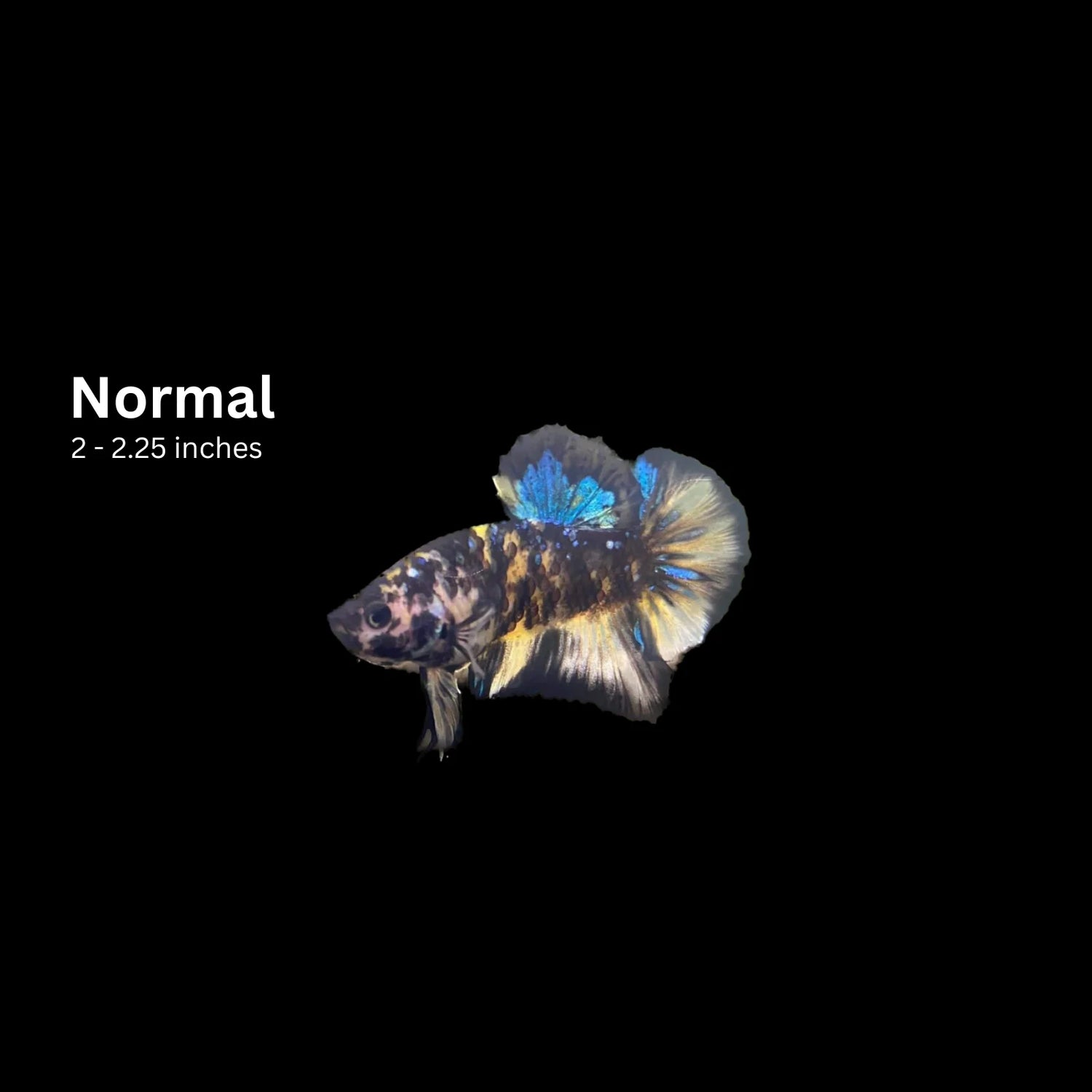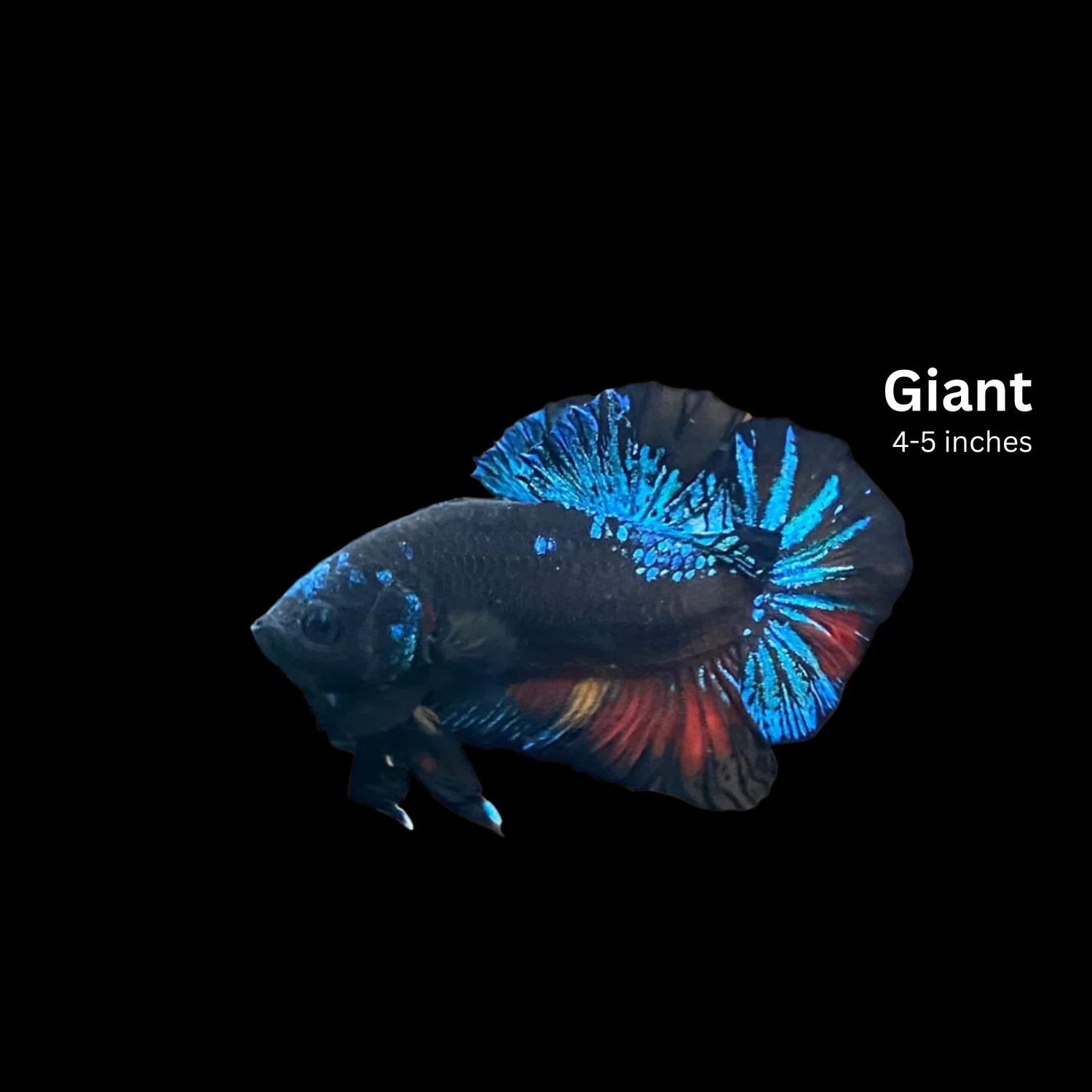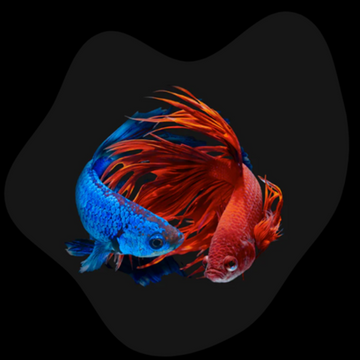The giant betta is a type of betta fish that is larger than the standard variety. It is believed to have originated in Thailand, where many of the most successful and well-known super giant betta breeders are located, and where the majority of Giant Betta Fish for sale internationally come from.
Rare Giant Multicolors Betta Fish (Male)
Rare Giant Multicolors Betta Fish (Male)
Rare Giant Multicolors Betta Fish (Male)
Rare Giant Multicolors Betta Fish (Male)
Rare Giant Multicolors Betta Fish (Male)
Rare Giant Multicolors Betta Fish (Male)
Rare Giant Multicolors Betta Fish (Male)
Rare Giant Multicolors Betta Fish (Male)
Rare Giant Multicolors Betta Fish (Male)
Rare Giant Multicolors Betta Fish (Male)
Rare Giant Multicolors Betta Fish (Male)
Rare Giant Multicolors Betta Fish (Male)
Rare Giant Multicolors Betta Fish (Male)
Rare Giant Multicolors Betta Fish (Male)
Rare Giant Red Copper Betta Fish (Male)
Rare Super Giant Copper Red Tail Betta Fish (Female)
Rare Super Giant Koi Multicolors Betta Fish (Female)
Rare Super Giant Koi Multicolors Betta Fish (Female)
Rare Giant Nemo Betta Fish (Male)
Rare Giant Nemo Betta Fish (Male)
Rare Giant Yellow Tiger Betta Fish (Male)
Rare Super Giant Red Copper Betta Fish (Female)
Rare Giant Nemo Betta Fish (Male)
Rare Giant Multicolors Betta Fish (Female)
Rare Giant Multicolors Betta Fish (Female)
Rare Giant Antique Betta Fish (Male)
Rare Giant Multicolors Betta Fish (Male)
Rare Giant Multicolors Betta Fish (Male)
ABOUT GIANT BETTA FISH
What is a giant betta?
Giant betta fish, also known as super giant betta, and giant king betta, is a variety of the Betta splendens, the famous Siamese fighting fish. Its main characteristic is its impressive size, being considered the biggest betta fish in the world. These big betta fish are coveted for their curious behavior, large size, and vibrant colors.
What is the story behind Giant Bettas?
The story behind giant bettas begins in Thailand. Where breeders noticed that some fish in their litter were bigger than others. In this way, those breeders begun to select and cross-breed these larger betta fish, thus creating these huge betta fish.
Find out everything about the origins of the biggest betta fish in the world by reading our complete guide to the giant betta fish.
What is a wild giant betta?
Wild giant bettas do not exist. Thai breeders created these super giant size bettas in captivity, through the selection and crossing of wild individuals. In any case, giant king bettas have the same physical characteristics as their wild cousins.
Can giant bettas breed with regular bettas?
Yes, giant bettas can breed with regular bettas. If this happens, the offspring will have varying sizes since there was a mix of genes from the biggest betta fish with common fish.
Are giant bettas more aggressive?
Giant betta fish can be more aggressive than common bettas, although this is not a general rule. Aggressiveness varies between individuals of these biggest betta fish. Environmental factors such as the giant betta tank size and bad tankmates can influence aggressiveness.
What is a super giant betta?
A super giant betta is a category of giant betta fish that reach a size of 3 inches around 4-5 months of age. As they grow, they can reach 5 inches. Regarding coloration, these super giant bettas have traditionally been more subdued in color, but modern breeding efforts have produced incredibly vibrant variants, achieving a high value in the hobby, due to their rarity. Giant betta, on the other hand, reach 2-2.5 inches when they are around 4-5 months of age, in addition to exhibiting a more compact structure relative to super giants. These fish reach adult sizes of around 3.5 inches.
How big is a giant betta?
The largest Giant Betta recorded was around 5 inches. It's important to mention that the size can vary significantly depending on the strains and care provided.
How big do betta fish get?
Betta fish can get up to 2.5 inches. Giant betta fish are big. Giant betta fish can reach 5 inches.
We have a complete article talking about the differences between these two fish.
How big do betta fish get?
Betta fish can get up to 2.5 inches. Giant betta fish are big. Giant betta fish can reach 5 inches.
We have a complete article talking about the differences between these two fish.
Are giant bettas healthy?
Yes, giant betta fish are healthy when kept in ideal conditions. Ideal conditions mean good quality water (free from pollutants such as ammonia), with the appropriate temperature (24°C to 28°C), stable parameters, and a balanced diet.
What is a giant betta'slifespan?
When properly cared for and with the right environmental conditions, the giant betta fish have a lifespan of 2 years, in rare cases it can get up to 3 years.
OUR LEGACY
We work tirelessly for 30 years to uphold the high standards set by our Thai ancestors and fellow breeders, ensuring that each and every Betta Fish for sale we produce is of the highest premium quality and meets the expectations of our customers. When you buy live betta fish online from us, you're not just purchasing a beautiful and captivating pet. You're also becoming a part of a long and rich history, and joining a community of people who appreciate and value the beauty and wonder of these amazing Betta Fish.


GIANT BETTA FISH CARE GUIDE
How much should I feed a giant betta?
You should feed your giant betta at least twice a day. Feed the biggest betta fish in the world in small portions, using high-quality food and avoiding overfeeding. Use live, fresh, and commercial foods. A varied diet is ideal for the health of the fish.
What is the ideal aquarium size for a giant betta?
The ideal aquarium size for a giant betta is over 10 gallons. These big betta fish tanks are necessary to ensure water quality and the well-being of giant betta fish.
How to care for a giant betta?
It's easy to care for a giant betta. Care is the same as with common bettas. Keep the water in good quality and with parameters acceptable to the largest betta fish, keep the temperature stable and warm, offer hiding places and places to the fish explore, a filtration system, and a varied diet.
How to breed giant bettas?
To breed giant bettas, you must proceed in the same way as for common bettas. It's best to use an exclusive tank to breed giant king betta. And carefully select the breeding pair. As well as having the willingness, time, and everything you need to keep up with the mating ritual and attentive care for the fry after birth.
How much should I feed giant betta fry?
You should feed your giant betta fry at least three times a day. To ensure healthy growth, the fry of these big betta fish must be fed as many times a day as possible with specific fry food, ensuring they receive the necessary nutrients.
How much should I feed giant betta fry?
You should feed your giant betta fry at least three times a day. To ensure healthy growth, the fry of these big betta fish must be fed as many times a day as possible with specific fry food, ensuring they receive the necessary nutrients.
Do giant bettas have any specific water requirements?
Yes, giant bettas have specific water requirements. The perfect water for keeping giant king bettas has a temperature varying between 24°C and 28°C, a pH close to 7, and free of unwanted compounds such as ammonia, nitrite, or very high hardness.
What is the difference between giant betta and king betta?
The difference between giant betta and king betta is size. While giant betta fish reach sizes of up to 5 inches, king bettas are around 2 to 2.5 inches.
Find out now the differences between these fish in our article king betta vs. giant betta.
Are giant bettas prone to disease?
Giant bettas are prone to intestinal illnesses when fed incorrectly and can become ill if aquarium conditions are unsuitable. Maintaining a clean environment and monitoring health are staples for preventing diseases and conditions.
What makes giant bettas special?
What makes giant bettas special is that they are the largest betta fish. Giant betta fish also exhibit an exuberant beauty. They are fascinating fish that stand out in any aquarium.
Are giant bettas recommended for aquarium beginners?
In general, no, giant bettas are not recommended for beginner aquarists. Due to their territorialism and large size, giant bettas should be kept by those with some practical experience with bettas. Beginners often benefit from starting with common betta varieties before considering the biggest betta fish in the world.
Are there types of giant bettas?
Yes, there are types of giant betta. Because they are fish bred in captivity, there are a multitude of colors and fin types of these fish, such as giant koi betta, giant halfmoon betta, giant plakat betta, giant galaxy koi betta, giant hellboy betta, and many others.
Are there differences between giant female betta and giant male betta?
Yes, there are differences between giant female betta and giant male betta. These differences are both behavioral and appearance. Giant female bettas are smaller, with a more robust body shape, short fins, and less colorful colors, and are more peaceful, being able to coexist even with other female bettas. Giant male bettas have exuberant fins, showy and bright colors, and are very territorial and aggressive.
What is the origin of giant bettas' vibrant colors?
The origin of giant bettas' vibrant colors is the result of centuries of artificial selection by breeders. The genetic inheritance obtained by careful selection of individuals contributes to the varied and attractive colors they present.
Do giant bettas have any specific preferences regarding lighting in the aquarium?
Giant bettas have specific preferences regarding lighting in the aquarium, preferring low-light environments. The idea is to maintain areas with moderate to soft lighting where these huge bettas can hide.
Can giant bettas be kept in planted aquariums?
Yes, giant bettas can be kept in planted aquariums. When in planted tanks, due to the strong incidence of light, it is vital to provide shaded places.
Can giant bettas adapt to different types of water?
In general, yes, giant bettas can adapt to different types of water. These huge bettas can adapt to different pH and temperatures, as long as they are within the ideal ranges for the fish. But giant betta fish are sensitive to sudden changes in water conditions. It is crucial to maintain stable parameters, such as temperature, pH, and water hardness, to avoid stress and health problems.
































